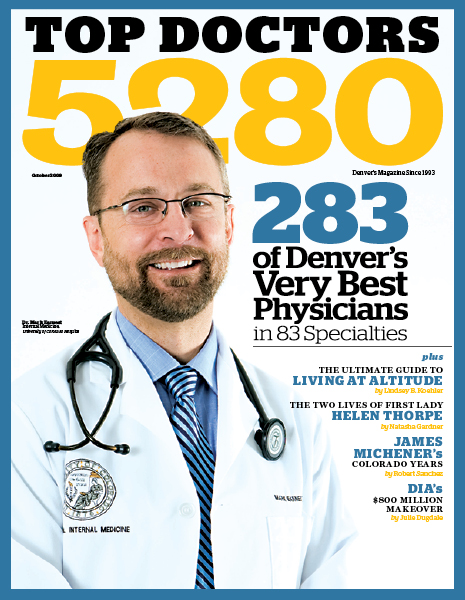The Local newsletter is your free, daily guide to life in Colorado. For locals, by locals.
It’s Friday at 5:30 p.m., and traffic on I-25 is crawling—just another rush-hour commute for the vehicles that make about six million trips on metro roadways daily. Traffic has gotten so clogged that the average area commuter wastes 45 hours annually idling. Unfortunately, the congestion is only going to increase as Colorado’s population continues to rise and more people swarm to the highways. And, unlike other states, the economy hasn’t put a dent in our traffic woes: “States nationwide have actually seen a decrease in vehicle miles traveled,” says Stacey Stegman, director of public information for the Colorado Department of Transportation. “Colorado hasn’t.”
That’s because, in part, our overreliance on the car has backed us into a cul-de-sac. Sure, the T-Rex expansion widened I-25, but that took more than a decade to complete and cost $1.67 billion. Road construction can’t keep pace with our rapid population growth; the metro area is projected to add one million residents by 2030. Public transit, meanwhile, is limited. RTD’s light-rail lines are slowly snaking out into the suburbs. But completion of the tracks is up in the air since FasTracks is facing a budget deficit of $2 billion because of falling sales tax revenue and rising construction costs.
Addled commuters can help by getting out of the driver’s seat. “One immediate option for reducing traffic is for people to choose to ride the bus or light rail, even if it’s just one day a week,” says Stegman. Alternatively, hitch rides with your coworkers or neighbors; nearly 75 percent of Colorado commuters drive solo, leaving the HOV lanes underused. Or dust off the bike and hit the trails—depending on your route, cycling to work can be quicker than driving.
Besides preserving your sanity, driving fewer miles will reduce air pollution—behind electricity consumption, transportation is Colorado’s second-largest contributor of greenhouse gas emissions. In 2007, Governor Ritter unveiled Colorado’s Climate Action Plan, the state’s most comprehensive step toward reducing greenhouse gas emissions, but it may take decades to see significant results. Buying an eco-friendly car or simply maintaining your current car—yes, it’s time for that oil change—can make a difference now. “Anything we’re trying to accomplish at a global level will take a long time,” says Scott Morrissey, deputy director of Greenprint Denver, the city’s sustainability program. “But if we make daily efforts, it helps.”









